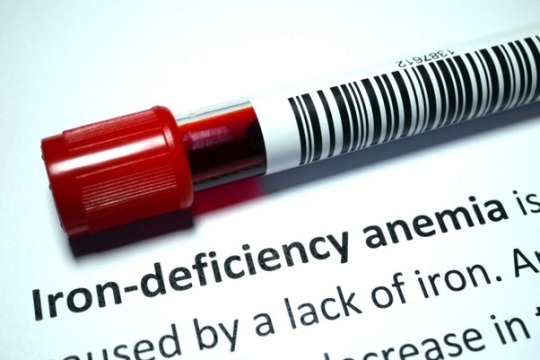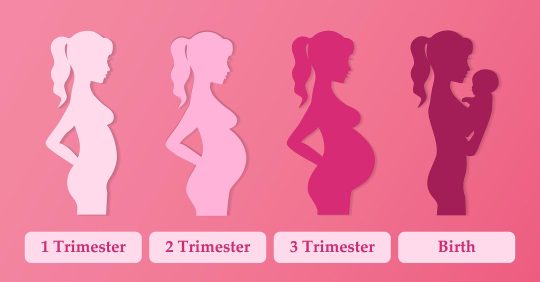#vegetables to avoid during pregnancy
Audio
Pregnancy is a very beautiful and also a very great time period for parents to be. As it gives various lifetime experiences to them. And taking care of the woman at this time is of utmost importance. Therefore, there are a few vegetables to avoid during pregnancy. Some of the food items are mentioned below.
1. Mercury fish
2. Smoked seafood.
3. Raw meat
4. Unpasteurized milk products
5. Soft cheese
6. Raw fruits and vegetables.
7. Raw sprouts
8. Salad made in a restaurant
9. Caffeine
10. Canned or packed vegetables
https://wakeposts.com/foods-to-avoid-when-pregnant/
0 notes
Text
Is It Safe To Eat Zucchini During Pregnancy? Courgette in Pregnancy
#Is #It #Safe #To #Eat #Zucchini #During #Pregnancy?
#Courgette #in #Pregnancy
#zucchini,zucchini #benefits,zucchini #recipes,zucchini #health #benefits,zucchini #fritters,benefits
Zucchini During Pregnancy is a nutritious vegetable that can be safely consumed. It is low in calories, rich in vitamins and minerals, and provides essential nutrients for the mother and the developing baby. Including zucchini in your pregnancy diet can promote a well-balanced and healthy diet.
What Is Zucchini?
Zucchini is a versatile summer squash that belongs to the Cucurbitaceae family. It…

View On WordPress
#avoid during pregnancy#benefits of zucchini#Benefits of Zucchini During Pregnancy#best vegetables during pregnancy#Canned Zucchini During Pregnancy#courgette#courgette fries#courgette fritti#cucumber during pregnancy#diet during pregnancy#eating cucumber during pregnancy#foods to eat during 3rd month of pregnancy#foods to eat during pregnancy#gain weight during pregnancy#green zucchini#health benefits of zucchini#healthy pregnancy#How To Cook Zucchini During Pregnancy?#Is Zucchini Good For You#Nutrition of Zucchini#okra during pregnancy#pregnancy#pregnancy diet#pregnancy foods#protein during pregnancy#Side Effects of Zucchini During Pregnancy#spinch during pregnancy#vegetables to avoid during pregnancy#weight gain during pregnancy#What is your Favorite Way to Eat Zucchini During Pregnancy?
0 notes
Text

#best breakfast for pregnant woman#best fruits to eat during pregnancy#best vegetables to eat during pregnancy#healthy drinks for pregnancy#late-night pregnancy snacks#what foods to avoid in pregnancy#what should not eat during pregnancy
0 notes
Note
Telling Tuco that you’re pregnant and thinking he’ll be mad but he’s overjoyed

notes: render is female, unwanted pregnancy.
words: 1037

When the pregnancy test came back positive, you realized you were screwed.
Really screwed.
And it was a reality that could have happened at any moment since your only forms of contraception were the birth control pills you took every day. The condom was abandoned after the second encounter when Tuco became obsessed with the raw, pure sensation of sex with you, and by the time your relationship became more serious, the contraceptive methods were only on your side, as Tuco was Tuco and there wasn't much to do about it.
But now the result of your carelessness was in that positive pregnancy test and the slight swelling of your belly that was barely noticeable. Maybe you were one or two months pregnant, but you weren't even sure because terror seemed to be the only thing invading your thoughts.
You had no idea how Tuco would react to the news, he never talked about family or children, despite his siblings and cousins having already settled down with a family. Tuco lived his life very differently from the traditional Mexican family model, and you followed in his footsteps. You were young, too young to even think about getting pregnant, but it was too late to turn back now.
You had been avoiding the topic for weeks, during which time Tuco had become a bit more dependent on the drugs he used, and with that came more violent outbursts at work, but never with you. Normally, those outbursts would happen when something got out of his control and he didn't like it, and the thought of how he would react if he found out about your early pregnancy terrified you... What if he became violent? Would he be capable of doing something?
All your worries and fears led you to that day when Tuco was busy cooking lunch without being chemically altered. You wanted to approach him in his sobriety and in the mundanity of everyday life.
"Amorcito..." you called him as you quietly walked down the stairs barefoot.
From the kitchen, you heard a 'Dime, amor' accompanied by the sound of the frying pan splattering oil and the smell of cooked vegetables. You approached the kitchen and leaned against the door frame while looking at him with a shy expression on your face, quieter than usual.
"What's wrong? Why do you have that look on your face? The food is almost ready" Tuco said as he scraped the pot with a spatula.
All of that scene was worth admiring. Tuco, in his sobriety, looked like such an attentive husband; his worried gaze on you, that pastel-colored apron over him, how his voice sounded much softer and honeyed when he spoke to you, and the way he reassured you with more words. All those things really affected you emotionally, wishing he could put another child inside you as soon as possible.
You shook your head slightly to clear your thoughts and resumed your confession.
"I wanted to talk to you about something important... Do you have a second?"
"For you, I have a lifetime. Tell me, what's going on?" he replied while continuing to cook.
It took you a while to get to the point, the anxiety filtering through your body and sweating through your pores. You didn't understand why you were afraid to reveal your pregnancy, why you felt like crying just trying to say the words, why the idea of him not accepting the news and leaving you scared you.
Your lips trembled before uttering the words, and you seemed deeply affected.
"My period hasn't come for months..." Your words came out soft, but that caught his attention instantly. His dark eyes widened at the moment and looked at you with surprise and seriousness, you trembled with fear. "And I took a pregnancy test and... I..."
When your words began to tremble and your eyes watered, Tuco let out a big sigh and turned off the stove to give you his full attention.
"And what about you?" His stern voice sent chills down your spine.
"I took several pregnancy tests and they came out positive..."
Silence filled the kitchen at that moment, the only sound you could hear was your heavy breathing and your heart about to burst. You couldn't look him in the eyes, you somehow felt guilty.
But Tuco's loud laughter snapped you out of your mental trance and forced you to look at him.
"¿¡Estás embarazada?!, Dios mío, no me lo puedo creer" The man had a smile from ear to ear that lit up his face, he looked so happy about the news that he couldn't stay still, going back and forth and babbling words of gratitude and blessings in spanish.
Feeling a great weight lifted off your shoulders, you sighed and let out a small cathartic laugh as you watched him in total amazement. Tuco approached you and held you tightly in his arms while dedicating sweet and cheesy words to you. When he pulled away and gave you a tender look, he placed his hand on your belly and touched the small bump with the palm of his hand.
"I can't believe my Amorcito is carrying my baby... How many months are you? Dios, I hadn't noticed the beautiful belly you have." His words tickled your ear and your smile eased the tension in your body.
"Two or three months... I don't know, just... I was scared to tell you when I found out."
"When you found out? And why were you scared?"
"A month ago and... I don't know, I was scared to think that you would hate me for getting pregnant and ruining your life..."
"Why would you think that? Corazón..." His lips landed on the softness of your cheek and he gave you a tender kiss. "I could never be angry with you for carrying my baby... Dios, what kind of man would I be if I hated the idea of you being pregnant?"
"We had never talked about this and well..."
"You shouldn't have worried your pretty little head with those mistaken ideas..." His lips now cradled yours in a tender and warm kiss before he continued speaking. "My God... You have no idea how happy Abuelita will be when she finds out you're pregnant. She will love you even more."
#better call saul x reader#breaking bad x reader#bcs x reader#tuco salamanca#tuco salamanca x reader#tuco salamanca fanfic#better call saul#breaking bad#tuco salamanca imagine
114 notes
·
View notes
Text
About Nina Cerasus’s illness the HCM
I mentioned in most of the chapters in Star-crossed and in Heavenbound (they both my fic you can read them here) that she has an illness that causes her character to have some plotlines and complexity.
It is actually a rare disease in real life, and not many know about it, so I decided to make an extra post to share some extra info about it. Let’s dig in!
About HCM:
It’s a type of heart disease called hypertrophic cardiomyopathy (HCM).
It basically causes the heart muscles to thicken, which in turn makes it more difficult to pump blood through the body’s system. HCM is a heart disease that can affect how effectively the heart can pump blood.
HCM is autosomal dominant condition, meaning that individuals have a 50% chance of inheriting, or passing on, the predisposition to this disorder to their children. (Nina inherited from her father Felix who already had a heart transplant surgery.)
What is it like to live with a disease like this?
The symptoms that Nina exhibits include shortness of breath, chest pain, and a propensity for fainting or feeling dizzy. There’s also a heightened risk of heart failure or sudden cardiac death. Also the medications she needs to take, make her often have a cold nose, hands and feet.
People with hypertrophic cardiomyopathy (HCM) will benefit from a heart-healthy diet. This includes a diet rich in fruits, vegetables, and whole grains and low in added sugar, sodium, and trans and saturated fats.
So Nina usually eats a very healthy balanced meal.
Making lifestyle changes such as exercising more, quitting smoking, and avoiding alcohol are beneficial. However, if you have HCM you should speak with a doctor before increasing your physical activity. The recommendation for people with HCM is to avoid high-intensity exercise since it can worsen symptoms. This is why Nina has pilates classes with Master Plo, and meditating classes.
About drinking coffee or other caffeinated drinks, always talk to your cardiologist! Because caffeine is a stimulant that affects everyone differently. If you are living with HCM, know how the foods, beverages, and supplements you consume could affect your heart rhythm.
Like alcohol, caffeine can also cause dehydration, which can worsen the symptoms of HCM. Ask your doctor about caffeine and what levels of coffee, soda, tea, and other caffeinated products are safe for you to drink.
I made Nina a tea girlie.
Women with HCM generally tolerate pregnancy well. The risk is however higher in women who are symptomatic before pregnancy or in those with severe left ventricular outflow tract obstruction. The incidence of arrhythmias does not appear to be increased during pregnancy and maternal mortality is low. But I made Nina make the decision to not have her own biological baby, and choose adoption instead in the Heavenbound storyline.
Author's Note:
I have to say that people with this kind of disease can live a normal life.
But I slightly overemphasized Nina's illness at certain points for dramaturgical reasons.
For example, hyperspace travels take a toll on her, if she doesn't receive certain treatment beforehand. This idea came from the fact that all travel can be physically stressful for us, so traveling in space and hyperspace jumping can certainly have an even greater effect on a person, and there is also space radiation. Thus, Nina must receive a certain vitamin cocktail injection in my story before the trip. This is, of course, fiction!
Nina avoids alcohol, smoking and caffeine-based drinks mostly. In her early 20's and party years she drinks and occasionally smokes, and quits it after receiving some bad news of her health.
She drinks mint tea. She exercises often and takes the necessary medications despite the side effects. She chose not to have a baby because she does not want to pass on this disease and is also afraid of death caused by childbirth.
I also wanted to show the emotional side of what it's like to live with this type of illness. In Star-crossed fic I have written many emotions based on my own experiences. (Not everyone accepts this disease with such feelings, of course it happens differently for everyone.) But in Nina's point of view - even if it was a little exaggerated - I gave her a lot of emotions and memories from my life.
In the first chapter and several other crisis situations, Nina experiences these emotional "storms".
These panic attacks usually happen to her after experiencing trauma. For example, when her mother died or when her father left them. When she found out about her illness and when Maul left her. (all mentioned in Star-crossed fic).It’s basically a panic attack mixed with deep repressed depression bursting out.
She called these episodes "storms" because just like the rain clouds these episodes end eventually.
Under these episodes she usually feels chest pain, dizziness, nauseous and she can't stop crying for a long time.
Nina is terribly ashamed of these episodes, she feels weak and vulnerable, which she hates. In such cases, she releases all suppressed anger and sadness by crying. When they are over, Nina is numb and quiet, her mind clears as she rebuilds her armor/or inner world. She represses and buries all the painful memories and thus tries to move on. (The first chapter of Star-crossed is basically an episode of one of her "storm.")
I know I kinda trauma dumped her, but don't feel bad about it. With these illnesses both physical and mental I wanted to give her character some complexity, and some dramatic deep feelings.
She is my character and I wanted to write a character who has the same illness as me. This is a kind of personal coping mechanism for me and I don't want to receive negative comments about it. If you don't like it, or triggered by it then, please move on to another blog and another story.
Taglist: @hellhound5925 @cloneloverrrrr @stardustbee @the-chains-are-the-easy-part @firstofficerwiggles
let me know if you would like to be added!
#meet my oc#nina nerasus#oc nina cerasus#nika's writing#star-crossed the fic#maul and nina#if you have questions i am so happy to answear them#character deep dive#OC info dump#OC info#my oc nina cerasus#my oc#maul x nina#heavenbound#nika's personal
5 notes
·
View notes
Text
HOW TO LOSE WEIGHT WOMEN

Comprehending Women’s Weight Loss
Women have particular difficulties when it comes to losing weight because of a variety of factors such as hormone swings, biology, and psychological issues. A woman’s weight loss journey is shaped by these factors, and gaining lasting results requires an awareness of them.
The Particular Difficulties Women Face
When it comes to losing weight, women frequently face different obstacles than males. Pregnancy, menopause, and hormonal changes during the menstrual cycle are a few examples of factors that can have a big impact on body composition and metabolism. Women’s self-perception and weight loss strategies can also be influenced by cultural norms and societal pressures related to body image.
Biology and Hormonal Factors
Hormonal cycles that affect the female body can have an impact on metabolism, energy levels, and hunger. Water retention and cravings are among the variables that are influenced by the fluctuations in estrogen, progesterone, and testosterone levels during the menstrual cycle. Creating a weight loss programme that works for women requires an understanding of how these hormonal changes impact metabolism and energy expenditure.
Psychological Elements
When it comes to losing weight, women frequently encounter particular psychological obstacles, such as emotional eating patterns, negative body image, and social pressure to meet particular body ideals. It is crucial to address these psychological aspects in order to promote a positive outlook and sustain long-term success in weight loss efforts.
Without any side affect Women’s use this supplement for weight loss click here
Crafting a Sustainable Weight Loss Plan
Women who want to lose weight should create a long-term plan that includes reasonable objectives, a healthy diet, consistent exercise, and lifestyle changes.
Setting Realistic Goals
Achievable goals are essential for maintaining motivation and commitment to a weight loss programme. Women should set reasonable objectives based on lifestyle considerations, body composition, and general health rather than just the number on the scale. The trip can seem less intimidating and more doable if long-term objectives are broken down into smaller, more achievable benchmarks.
Balancing Nutrition and Exercise

A healthy weight is achieved and maintained through a balance between exercise and nutrition. While limiting processed foods and sugary snacks, women should place a higher priority on nutrient-dense whole foods, such as an abundance of fruits and vegetables, lean proteins, and healthy fats. Maintaining a healthy weight can be maximized by combining regular exercise, such as strength training and cardiovascular exercises, with a well-rounded diet.
By reading this Ebook obese women can solve many of their problems Click Here
Incorporating Lifestyle Changes
Long-term weight management requires implementing lifestyle changes in addition to diet and exercise. Getting enough sleep, controlling stress, drinking plenty of water, and forming a solid support system are all important factors that can help a woman reach her weight loss objectives.
Nutrition Strategies for Effective Weight Loss
Weight loss is largely influenced by nutrition, and women can effectively support their goals by optimizing their food choices.
Emphasising Whole Foods
It is imperative to prioritize complete, unprocessed foods in order to supply the body with necessary nutrients while reducing unnecessary calories and harmful substances. Meals that are high in fruits, vegetables, whole grains, lean proteins, and healthy fats can help women lose weight and feel full and energized.
Mindful Eating and Portion Control
Women who practice portion control and mindful eating are better able to recognise their bodies’ signals of hunger and fullness, which helps them avoid overindulging and supports good weight management. Mindless snacking can be less likely by eating mindfully, chewing food carefully, and savoring every bite. These practices can also increase satisfaction.
Controlling Intake of Macronutrients
Maintaining optimal energy levels, promoting muscle growth and repair, and controlling appetite all depend on the balance of macronutrients, which include proteins, lipids, and carbs. Every meal should have a balance of the three macronutrients, with whole grains, lean proteins, and healthy fats being the top choices for women.
Exercise Regimens Tailored for Women
Any weight loss programme must include exercise, and women might get the most benefit from mixing up their routines to get the most out of it.
Strength Training for Metabolic Boost
Women benefit most from strength training because it increases lean muscle mass, which raises metabolism and improves fat burning. Women can enhance body composition, gain strength, and lose weight by including resistance activities like bodyweight exercises, resistance band workouts, and weightlifting into a weekly regimen.
Cardiovascular Workout to Burn Fat
Cardiovascular activity is a great way to increase cardiovascular health, burn calories, and enhance general wellbeing. Regular engagement in physical activities including walking, jogging, cycling, swimming, and dancing can raise heart rate, boost calorie expenditure, and aid in weight loss.
Incorporating Flexibility and Balance
Women should include flexibility and balancing exercises in their fitness regimen in addition to strength training and cardiovascular exercise to increase mobility, lower their risk of injury, and improve overall physical function. Exercises like yoga, pilates, stretching, and balancing can enhance other workouts and advance overall health.
Lifestyle Practices that Aid in Losing Weight
Adopting good lifestyle behaviors is crucial for sustaining long-term success in weight loss attempts, in addition to food and exercise.
Making sleep and stress reduction a priority

Getting enough sleep is essential for controlling hormones that govern hunger and metabolism, which makes it a critical component of weight loss. To control stress levels and enhance general wellbeing, women should strive for seven to nine hours of good sleep each night and use relaxation methods like deep breathing, yoga, and meditation.
Hydration’s Effect on Losing Weight
Maintaining hydration is critical for promoting metabolism, facilitating digestion, and controlling hunger. To encourage satiety and avoid overeating, women should make it a goal to drink lots of water throughout the day, especially before meals. Choosing foods high in water, such fruits, vegetables, and soups, can also help you stay hydrated and lose weight.
Building a Support Network
A woman’s weight loss journey can be greatly impacted by having a solid support system because it can offer inspiration, accountability, and encouragement. Women should surround themselves with like-minded friends, relatives, or support groups that can help them along the road and provide understanding, support, and direction.
In conclusion, reaching and maintaining a healthy weight necessitates a multimodal strategy that takes into account lifestyle adjustments, activity, and diet specific to the needs of women. Women can start on a successful weight reduction journey and realize their goals in the long run by identifying the obstacles they encounter, setting realistic goals, emphasizing regular exercise and a balanced diet, and embracing healthy lifestyle practices.
Without any side affect Women’s use this supplement for weight loss click here
Disclaimer: There are affiliate links in the link given above and if you buy something, I'll get a commission to meet my educational expenses but no extra cost to you.
#weight#i wanna lose weight#weight loss#i need to lose so much weight#lose weight#lose weight fast#lose weight tips#lose weight motivation#lose weight at home#lose weight without exercise#smart women#tumbler
2 notes
·
View notes
Text
How to Grow Your Nails Fast

Introduction
In a world where trends change as quickly as the seasons, one thing that never goes out of style is healthy, strong nails. Whether you're into nail art or prefer a natural look, having well-groomed nails can boost your confidence and enhance your overall appearance. But what if you're struggling with slow nail growth? Fear not, as we delve into the intricacies of nail growth and explore effective strategies to accelerate the process.
Understanding Nail Growth
Anatomy of a Nail
Nails might seem like simple structures, but they are actually quite complex. Each nail comprises multiple layers of a protein called keratin, which provides strength and protection. Beneath the visible nail plate lies the nail bed, where new cells constantly form and push the nail forward.
Nail Growth Cycle
Nails, like hair, follow a distinct growth cycle consisting of three phases: the anagen (growth) phase, the catagen (transition) phase, and the telogen (resting) phase. Understanding this cycle is crucial for maximizing nail growth potential.
Factors Affecting Nail Growth
Diet and Nutrition
You are what you eat, and the same applies to your nails. A balanced diet rich in vitamins, minerals, and proteins is essential for promoting healthy nail growth. Incorporate foods like fruits, vegetables, lean proteins, and whole grains to nourish your nails from the inside out.
Hydration Levels
Hydration plays a significant role in nail health. Dehydrated nails are more prone to breakage and brittleness. Ensure you drink an adequate amount of water daily to keep your nails hydrated and supple.
Hormonal Balance
Hormonal fluctuations can impact nail growth. Women may notice changes in nail growth during pregnancy, menstruation, or menopause. Maintaining hormonal balance through proper nutrition and lifestyle choices can help support healthy nail growth.
Nail Care Habits
How you care for your nails can either promote or hinder their growth. Avoid harsh chemicals found in nail polish removers and household cleaners, as they can weaken nails. Additionally, refrain from using your nails as tools for tasks like opening cans or scratching surfaces.
You can also try this product ProNail Complex

Tips for Faster Nail Growth
Maintain a Balanced Diet Rich in Essential Nutrients
Fuel your body with the nutrients it needs for optimal nail growth. Incorporate foods high in biotin, vitamin E, iron, and zinc into your diet. Consider adding supplements if you're not getting enough nutrients from food alone.
Stay Hydrated
Hydration is key to healthy nails. Drink plenty of water throughout the day to keep your nails hydrated and prevent them from becoming dry and brittle.
Avoid Harsh Chemicals and Nail Trauma
Protect your nails from damage by avoiding exposure to harsh chemicals and minimizing trauma. Wear gloves when cleaning or doing dishes, and be gentle when filing or shaping your nails.
Practice Proper Nail Care Techniques
Trim your nails regularly to prevent breakage and promote growth. Use a gentle nail file to shape the edges, and always file in one direction to avoid weakening the nails. Keep cuticles moisturized and gently push them back rather than cutting them.
Consider Supplements and Treatments
Explore supplements and treatments specifically formulated to promote nail growth. Look for products containing ingredients like biotin, keratin, and peptides, which can help strengthen nails and stimulate growth.
Natural Remedies for Nail Growth
Coconut Oil Massage
Massage coconut oil into your nails and cuticles daily to moisturize and strengthen them. Coconut oil contains fatty acids and vitamins that nourish the nails and promote growth.
Garlic Paste Application
Apply a paste made from crushed garlic cloves to your nails and leave it on for a few minutes before rinsing off. Garlic is rich in selenium and sulfur, which can help stimulate nail growth and improve overall nail health.
Lemon Juice Soak
Soak your nails in lemon juice for a few minutes to help brighten and strengthen them. Lemon juice contains vitamin C, which promotes collagen production and aids in nail growth.
Professional Treatments for Nail Growth
Nail Strengthening Treatments
Visit a nail salon for professional strengthening treatments like gel overlays or dip powder manicures. These treatments can provide added protection to weak or brittle nails and promote growth.
Nail Growth Serums
Invest in a quality nail growth serum containing ingredients like peptides, vitamins, and antioxidants. These serums penetrate the nail bed to nourish and strengthen nails from within, promoting faster growth.
Nail Extensions and Overlays
Consider getting nail extensions or overlays if you struggle with short or weak nails. These artificial enhancements can provide instant length and strength while allowing your natural nails to grow underneath.
Lifestyle Changes for Nail Health
Manage Stress Levels
Chronic stress can take a toll on nail health. Practice stress-reducing activities like yoga, meditation, or deep breathing exercises to promote overall well-being and support healthy nail growth.
Protect Your Nails
Wear gloves when performing activities that may expose your nails to harsh chemicals or excessive moisture. Protecting your nails from damage can help prevent breakage and promote faster growth.
Avoid Excessive Use of Nail Polish and Nail Polish Removers
While nail polish can add flair to your look, excessive use can weaken nails. Give your nails a break from polish occasionally to allow them to breathe and recover. When using nail polish removers, opt for acetone-free formulas to minimize drying and damage.
Nail Care Dos and Don'ts
Dos: Keep Nails Clean and Dry
Practice good hygiene by keeping your nails clean and dry. Use a gentle soap and water to wash your hands, and dry them thoroughly afterward to prevent bacterial or fungal infections.
Don't: Bite or Pick at Nails
Resist the urge to bite or pick at your nails, as this can cause damage and hinder growth. Instead, keep your nails neatly trimmed and filed to reduce the temptation to bite or pick.
Understanding Nail Disorders
Common Nail Problems
Be vigilant for signs of common nail disorders such as fungal infections, nail psoriasis, or ingrown nails. Prompt identification and treatment can prevent further damage and promote healthy nail growth.
You can also try this product ProNail Complex
When to Seek Professional Help
If you experience persistent nail problems or notice sudden changes in nail growth or appearance, consult a dermatologist or nail specialist. They can diagnose underlying issues and recommend appropriate treatments to restore nail health.
Conclusion
Growing your nails fast requires patience, consistency, and a holistic approach to nail care. By nourishing your body with a balanced diet, practicing good nail hygiene, and exploring natural remedies and professional treatments, you can achieve the strong, healthy nails you desire. Embrace the journey of nail growth, celebrate progress along the way, and flaunt your fabulous fingertips with confidence.
Disclaimer:
Please note that this article contains affiliate links to products that I believe may be beneficial for readers interested in enhancing their nail health and promoting faster nail growth. If you click on these links and make a purchase, I may earn a small commission at no additional cost to you.
2 notes
·
View notes
Text
Mood swings can be influenced by a variety of factors, including biological, psychological, and environmental factors. Here are some common reasons for experiencing mood swings and strategies to help manage them:
1. **Hormonal Changes**: Fluctuations in hormones, such as during menstruation, pregnancy, or menopause, can contribute to mood swings. Keeping track of your menstrual cycle and practicing self-care during hormonal changes can help alleviate mood swings.
2. **Stress and Anxiety**: High levels of stress or anxiety can lead to mood swings. Practicing stress management techniques such as mindfulness, deep breathing exercises, regular exercise, and seeking support from friends or a therapist can help reduce stress and stabilize mood.
3. **Sleep Disturbances**: Poor sleep quality or inadequate sleep can affect mood stability. Establishing a regular sleep schedule, creating a relaxing bedtime routine, and optimizing your sleep environment can improve sleep quality and reduce mood swings.
4. **Nutritional Factors**: Nutritional deficiencies or imbalances, such as low blood sugar levels or inadequate intake of essential nutrients, can impact mood. Eating a balanced diet rich in fruits, vegetables, whole grains, lean proteins, and healthy fats can support stable mood.
5. **Underlying Mental Health Conditions**: Mood swings can be a symptom of underlying mental health conditions such as depression, bipolar disorder, or borderline personality disorder. Seeking professional help from a therapist or psychiatrist for proper evaluation and treatment can address underlying mental health concerns.
6. **Substance Use**: Alcohol, drugs, and caffeine can disrupt neurotransmitter levels in the brain and contribute to mood swings. Limiting or avoiding substance use, especially during times of emotional instability, can help stabilize mood.
7. **Lifestyle Factors**: Lifestyle habits such as excessive screen time, lack of physical activity, social isolation, or unhealthy coping mechanisms can exacerbate mood swings. Engaging in activities that promote physical, emotional, and social well-being, such as hobbies, socializing, and relaxation techniques, can improve mood stability.
It's essential to identify the underlying causes of your mood swings and develop a personalized plan to address them. If mood swings persist or significantly interfere with your daily functioning, don't hesitate to seek support from a mental health professional for further evaluation and treatment. They can provide guidance, support, and effective strategies to help you manage your mood swings and improve your overall well-being.


2 notes
·
View notes
Text
Six Wellness Methods For Pregnant Women

Pregnancy is actually a transformative as well as fantastic time for pregnant mamas, but it additionally possesses the accountability of dealing with both themselves as well as their building little ones. Correct health and health while pregnant are actually essential for a hassle-free and also safe adventure towards becoming a mother. In this short article, our experts will discover six important health recommendations that expectant females should observe to guarantee a healthy and delighted maternity.
Balanced and also Nourishing Diet
Keeping a nutritious and balanced diet regimen is important during pregnancy. The building little one relies upon the mama's consumption for nutrients, minerals, as well as vitamins necessary for growth and progression. Concentrate on consuming a variety of fruits, vegetables, healthy proteins, whole grains, and dairy products. Avoid coming from refined as well as unhealthy foods that offer little bit of to no dietary value. You will get additional information on pregnancy by visiting how soon after unprotected can i test for pregnancy site.
Hydration is Secret
Remaining moisturized is actually usually forgotten however is important while pregnant. Pregnant girls need additional water to assist the boosted blood stream volume, amniotic fluid, as well as total bodily functions. Dehydration may result in complications, thus make it a routine to consume alcohol loads of water throughout the day.
Regular Workout
Keeping a normal physical exercise regimen while pregnant can deliver several advantages. It assists to enhance flow, manage body weight gain, as well as improves state of mind and power amounts. It is actually necessary to speak to along with a health care expert before beginning any exercise course and also decide for low-impact activities suited for pregnancy.
Antenatal Vitamins
Prenatal vitamins are actually especially created to fulfill the dietary necessities of expectant women. They normally contain folic acid, iron, calcium, and also other crucial nutrients. These supplements complete any kind of nutritional gaps and also support the healthy progression of the child.
Correct Sleep as well as Rest
Sleep is critical for pregnant women as their body systems are striving to support the expanding baby. Getting good enough rest helps in decreasing tiredness, keeping hormonal agent balance, and also promoting general welfare. It is highly recommended to reconsider the left edge as it improves blood flow to the placenta.
Manage Stress and anxiety
Maternity may be a stressful time, but extreme stress is not appropriate for the health of the little one or even the mama. Locate methods to handle worry, including performing mindfulness approaches, deep breathing physical exercises, or antenatal yoga exercise. Border on your own with a support system that can easily assist minimize tension as well as anxiety.
Avoid Harmful Substances
It is necessary for pregnant females to avoid unsafe drugs that can negatively impact the baby's growth. This features alcohol, tobacco, and also illegal drugs. Even certain medicines should simply be actually taken under the guidance of a healthcare provider to guarantee they are safe during pregnancy.
Regular Antenatal Examinations
Normal prenatal inspections along with medical care professionals are actually necessary to keep track of the progression of the maternity as well as address any potential problems. These exams permit early detection of any type of problems and make certain timely interventions if needed.
Oral Wellness
Pregnant girls frequently experience modifications in their dental health and wellness as a result of hormonal switches. Good dental cleanliness process, such as frequent brushing, flossing, and dental inspections, are actually crucial while pregnant. Poor oral wellness has actually been actually connected to preterm birth and poor childbirth weight.
Get ready for the Birth
As the due day methods, it is actually essential to get ready for the birth method. Go to giving birth learning training class, generate a birth planning, and also review your choices with your doctor. Being informed as well as prepped can easily help in reducing anxiousness regarding the labor.
Outcome
Maternity is a considerable and also lovely trip for females, and also dealing with their wellness is actually of utmost relevance during the course of this moment. By complying with these six health and wellness tips, expecting mothers may ensure a well-balanced and enjoyable pregnancy for themselves and their little ones.
4 notes
·
View notes
Text
Best Acne Doctor in Yamunanagar
Acne, a common skin condition, affects millions of individuals worldwide. It not only impacts physical appearance but also takes a toll on self-esteem and confidence. In this post, we will discuss causes and symptoms of acne, as well as explore Ayurvedic and Homeopathic treatment options. We are proud to introduce Dr. Garg - Umeedhom (Scientific Clinic), who specializes in providing holistic solutions for managing acne.
Understanding Acne:
Acne is a skin disorder that occurs when hair follicles become clogged with oil, dead skin cells, and bacteria. It predominantly affects areas with a high concentration of oil glands, such as the face, chest, and back. While it is most commonly associated with adolescence, acne can persist into adulthood, causing discomfort and emotional distress.
Causes of Acne:
Several factors contribute to the development of acne:
Excess Sebum Production: Overactive oil glands produce more sebum, which can clog hair follicles and lead to acne.
Clogged Pores: The combination of dead skin cells and excess oil can create blockages in hair follicles, resulting in blackheads, whiteheads, and pimples.
Bacterial Infection: The bacterium Propionibacterium acnes can thrive in clogged hair follicles, causing inflammation and breakouts.
Hormonal Changes: Fluctuations in hormones, particularly during puberty, menstruation, pregnancy, and menopause, can trigger acne.
Diet and Lifestyle: Certain diets high in dairy, refined sugars, and processed foods, as well as high-stress levels, can exacerbate acne.
Symptoms of Acne:
The symptoms of acne can vary in severity:
Blackheads: Small, dark bumps that form when hair follicles become clogged and the top remains open.
Whiteheads: Similar to blackheads, but covered by a thin layer of skin, giving them a white appearance.
Papules: Small, red, raised bumps caused by infected or inflamed hair follicles.
Pustules: Red bumps with white or yellow centers, often referred to as "pimples."
Cysts: Large, painful, pus-filled lumps that form beneath the skin's surface.
Ayurvedic Treatment for Acne:
Ayurveda, an ancient holistic healing system, offers natural approaches to managing acne:
Herbal Cleansing: Cleansing herbs like neem and turmeric help purify the blood and detoxify the body.
Dietary Changes: Avoiding excessive spicy, oily, and junk foods, and incorporating fresh fruits, vegetables, and water can promote clear skin.
Herbal Supplements: Herbal supplements like guggul, amla, and manjistha can balance hormones and promote skin health.
Homeopathic Treatment for Acne:
Homeopathy addresses acne by considering the individual's constitution and symptoms:
Sulphur: Used for acne with intense itching and burning sensations on the skin.
Pulsatilla: Prescribed for acne worsened by rich, fatty foods and hormonal fluctuations.
Hepar Sulph: Suitable for acne that is extremely painful and sensitive to touch.
Meet Dr. Garg - Umeedhom (Scientific Clinic): Best Acne Doctor in Yamunanagar
Dr. Garg is a renowned practitioner at Umeedhom (Scientific Clinic), specializing in holistic approaches to acne management. With years of experience, Dr. Garg offers personalized Ayurvedic and Homeopathic treatments to address the root causes of acne and promote clear, healthy skin.
Conclusion:
Acne is a common skin condition with various underlying causes. While it can impact self-confidence, effective treatment options are available. Dr. Garg Your Skincare Expert (Scientific Clinic) offers personalized Ayurvedic and Homeopathic solutions that address acne's root causes, providing hope for those seeking clear and radiant skin. Remember, achieving healthy skin requires patience and consistency in following the recommended treatments.
#Best Acne Doctor in Yamunanagar#best ayurvedic doctor in yamunanagar#ayurvedic doctor near me#ayurvedicmedicine#ayurvedictreatment#bollywoodedit#skin care#ayurveda#ayurvedicherbs#sureshotherbals#Homeopathic Treatment for Acne#Ayurvedic Treatment for Acne
2 notes
·
View notes
Text
Unveiling Iron Deficiency: Causes, Symptoms, and Treatment Options

Iron, a vital mineral, plays a pivotal role in maintaining our overall health and vitality. It’s an essential component of hemoglobin, the protein responsible for carrying oxygen from the lungs to all parts of the body including the brain and muscles. Iron also plays a role in converting sugar to energy, boosting the immune system, aiding in cognitive function, and supporting healthy skin, hair, and nails.
Iron deficiency is a prevalent condition that can lead to a whole host of symptoms. Some of these symptoms are well known – heart palpitations, fatigue, weakened immunity, shortness of breath and weakness. Other symptoms can include anxiety and low mood, restless leg syndrome, and cognitive changes. There are so many factors that contribute to our health, but it is important to make sure that nutrient deficiencies are not contributing to your overall symptom picture. Iron deficiency is a big one to watch out for especially in menstruating individuals. Blood testing for a CBC and ferritin are easy and affordable and should always be part of your routine examination.
Causes
Iron deficiency can arise from several factors including inadequate dietary intake, poor absorption, increased demand during growth or pregnancy, blood loss such as menstruation, or genetic causes.
Sometimes we struggle to get enough iron in the diet – maybe it is due to dietary restrictions or just a busy schedule; this combined with inadequate absorption can make it challenging to maintain the levels of iron that the body needs. GI absorption can be affected by a number a factors – SIBO, leaky gut, gut inflammation, IBD, IBS, stress (the list goes on)! Working on gut health is always a priority for laying a strong foundation for health, but this can take time and sometimes we need to shift our treatment approaches to best support the immediate needs.
Blood loss from menstruation is a major contributor to iron deficiency in women. It can feel like an uphill battle to build up iron stores with oral supplements and unfortunately the body will tend to have heavier periods of bleeding when we are low in iron! Additionally, some individuals may inherit traits that make them more prone to iron deficiency making it even more challenging to maintain the iron that your body needs.
Treatments
Oral iron supplementation is a necessary part of ongoing treatment for many. Oral Iron comes in a wide variety of forms and the main side effect reported with use is digestive upset, namely constipation. Vitamin C can help to offset this effect as it is a natural laxative and Vitamin C additionally helps iron to absorb.
The bisglycenate form is known for being the gentlest and least likely to have this effect, though some find that a plant-based iron is the only thing they can tolerate orally. Most find that if they split their dose up and take it throughout the day, the side effects are much more tolerable. It is best to talk with your physician to decide with option and dosing is best for you and your body.
B12 and Folate are crucial co-factors for red blood cell production so having adequate B vitamin supplementation is important in support iron deficiency and anemia as well.
Dietary Considerations
Foods high in iron include red meats (beef, lamb, pork), poultry, fish and shellfish, eggs, nuts, dried fruit, whole-meal pasta and bread, iron-fortified cereal, legumes (black beans, lentils, chickpeas), dark leafy green vegetables (spinach, broccoli), oats, tofu.
Vitamin C aids absorption (such as the supplement, or foods rich in Vitamin C, such as: apples, pomegranates, oranges, orange juice, cantaloupe, strawberries, grapefruit, kiwi and other Vitamin-C rich foods).
Cook in a cast-iron skillet, pots or pans to add extra iron to your food.
AVOID at the time of iron supplementation as these things that reduce the absorption: Dairy, calcium supplements, black tea, nuts, soda, chocolate, coffee.
Iron Infusions vs Oral Supplementation
Iron infusions bypass your digestive tract and can be helpful in those who have absorption issues or who get an upset stomach with oral supplements. Most find rapid benefit in mood, energy, brain fog and general sense of well-being when they receive a needed iron infusion.
IV iron treatment can be a game-changer for individuals struggling with iron deficiency, offering faster relief of symptoms than oral supplementation alone. Intravenous iron infusions deliver iron directly into the bloodstream, bypassing the digestive system and improving absorption rates. IV iron is great for people who struggle with constipation while taking oral iron. This method allows for faster and more effective replenishment of iron stores, leading to a rapid improvement in anemic symptoms. Treatment recommendations and frequency are made based off recent blood work including CBC, iron panel, and ferritin.
Additionally, we routinely prescribe Vitamin B injections for our patients to support the much-needed cofactors for iron absorption and red blood cell production. You can add on a B vitamin injection to your IV iron infusion, you will notice the positive effects!
Insurance companies are variable in whether they will cover an iron infusion. Typically, they will only cover these through a specialist, called a Hematologist, often within Oncology Departments. There are specific cut offs for ferritin and CBC parameters for insurance to cover these treatments, but people are often significantly symptomatic well before labs will reflect cuts offs for insurance coverage. Our clinic offers Venofer Iron Infusions prescribed by physicians, but we do not bill insurance for these services and all fees must be paid at the time of service. The benefit of doing treatments at the clinic include faster and more comfortable appointments, consultation time with your provider during the treatment, and accessibility outside of insurance coverage/ a hospital system.
If you’re interested in scheduling an appointment or you’d like more information, please contact us.
2 notes
·
View notes
Text
Blog Post 4: Looking back to move forward.

Blog Post 4: Looking back to move forward.
This week I’m remembering the why. I truly believe your willpower will only be as strong as your why. So, I’m taking you back to my why, which takes us back almost six years to the birth of my second son. It was a beautiful day, when He was born with His big brown eyes and brown hair making me the proud mom of two healthy boys. Except I still remember the nurse coming in every hour and pricking my youngest son’s feet. It was horrible. I was tired, He was tired, my husband was tired, and all I wanted to do was sleep, but the nurse had to check His blood sugar.
Why? Well because I had gestational diabetes all during the pregnancy leading up to the birth of my second son. My Dad had triple bypass surgery about three years ago, His mom had type 2 diabetes and later developed Alzheimer’s, and my aunt has type two diabetes as well. The gene pool clearly wasn’t flowing in my favor and the sickness seemed to trickle right down to me. The symptoms were low mood and a lack of energy, but I was mom. So, I chalked it up to job description. I mean, all moms are exhausted right? Apparently, these were warning signs of what was to come, I just didn’t know that at the time.
I ate sugar free chocolate pudding every day after dinner to curb my sweet tooth in a healthy way and took walks when my sugar was especially elevated. After I had my son, and after the heartache of hearing Him cry when the nurse checked His blood sugar, I moved on with life, sweets, and all. But a couple years ago I was diagnosed with chronic gastritis and acid reflux. So, this is when I became a vegan. I let go of the meats and cheeses, filled up the fridge with vegetables, and watched many documentaries about how diet is connected to overall health. My favorite documentary is still “What the Health” by Kip Anderson. In this documentary, Kip uncovers the secret to reversing chronic diseases.
After years of living a vegan lifestyle and seeing the health benefits including clear skin, good digestion, and overall increase in energy, I began to get lax in my efforts and became a vegetarian, and now I eat meat again. The point is that those habits are only as effective as my ability to maintain these healthy eating choices consistently and over a long period of time. Now I am focusing on eating healthy foods overall. I’m pulling back out those old but loved vegan recipes including crispy tofu with quinoa and steak seasoned zucchini. I even put some of the candy from my Christmas bag into the communal candy pile for someone else to devour. This may sound small to you, but it’s a big deal for me.
I said no to Super Bowl brownies and key lime cake last night, as well as all the diet sodas that I used to love. My favorite soda used to be cherry coke zero. The point is that Americans, myself included, consume too much sugar. I know I did, and I now must come up with a game plan to leave the sugar where it needs to stay, on the shelf for special occasions. According to the American Heart Association Americans on average consume 20 teaspoons of sugar per day while the recommended daily amount of sugar is 6 teaspoons for women and 9 teaspoons for men. Beverages make up most of our sugar consumption at a whopping 47% which include soft drinks, sports drinks, energy drinks, coffee, and tea. The second leading cause of excess sugar comes from snacks and sweets at 31%.
The point is, sugar consumption has gotten way out of control, especially in the United States, and we need to be aware of the risks associated with excess sugar which include chronic inflammation, tooth decay, acne, advanced skin aging, weight gain and obesity, diabetes and insulin resistance, cardiovascular disease, high blood pressure, brain loss, cancer, and premature death. Sugar though sweet can be deadly. It’s recommended by John Hopkins Medicine that we avoid sodas and other sugar sweetened beverages, reach for fruits instead of candy, cookies, or other sweet treats, read ingredient labels, and watch for sugar aliases. As it turns out, smoothies with no added sugar still taste sweet because that’s how they are made naturally. If we stop and think before we run to the sweets isle, in the future we will be happy with the choices we make.
“Always begin with the end in mind.” - Ellen Muth
References:
“How much sugar is too much?” American Heart Association. https://www.heart.org/en/healthy-living/healthy-eating/eat-smart/sugar/how-much-sugar-is-too-much
Ndumele, Chiadi. “Obesity, Sugar, and Heart Health.” Johns Hopkins Medicine. https://www.hopkinsmedicine.org/health/wellness-and-prevention/obesity-sugar-and-heart-health
4 notes
·
View notes
Text
Diet during pregnancy
The Academy of Nutrition and Dietetics recommends the following key components of a healthy lifestyle during pregnancy:
Appropriate weight gain
A balanced diet
Regular exercise
Appropriate and timely vitamin and mineral supplementation
Ideal Foods to Eat During Pregnancy
The following foods are beneficial to your health and fetal development during pregnancy:
Vegetables: carrots, sweet potatoes, pumpkin, spinach, cooked greens, tomatoes and red sweet peppers (for vitamin A and potassium)
Fruits: cantaloupe, honeydew, mangoes, prunes, bananas, apricots, oranges, and red or pink grapefruit (for potassium)
Dairy: fat-free or low-fat yogurt, skim or 1% milk, soymilk (for calcium, potassium, vitamins A and D)
Grains: ready-to-eat cereals/cooked cereals (for iron and folic acid)
Proteins: beans and peas; nuts and seeds; lean beef, lamb and pork; salmon, trout, herring, sardines and pollock
Foods to Avoid During Pregnancy
Avoid eating the following foods during pregnancy:
Unpasteurized milk and foods made with unpasteurized milk (soft cheeses, including feta, queso blanco and fresco, Camembert, brie or blue-veined cheeses—unless labeled “made with pasteurized milk")
Hot dogs and luncheon meats (unless they are heated until steaming hot before serving)
Raw and undercooked seafood, eggs and meat. Do not eat sushi made with raw fish (cooked sushi is safe).
Refrigerated pâté and meat spreads
Refrigerated smoked seafood
Prenatal Vitamin and Mineral Supplements
Most health care providers or midwives will prescribe a prenatal supplement before conception or shortly afterward to make sure that all of your nutritional needs are met. However, a prenatal supplement does not replace a healthy diet.
The Importance of Folic Acid
The U.S. Public Health Service recommends that all women of childbearing age consume 400 micrograms (0.4 mg) of folic acid each day. Folic acid is a nutrient found in:
Some green leafy vegetables
Most berries, nuts, beans, citrus fruits and fortified breakfast cereals
Some vitamin supplements.
Folic acid can help reduce the risk of neural tube defects, which are birth defects of the brain and spinal cord. Neural tube defects can lead to varying degrees of paralysis, incontinence and sometimes intellectual disability.
Folic acid is the most helpful during the first 28 days after conception, when most neural tube defects occur. Unfortunately, you may not realize that you are pregnant before 28 days. Therefore, your intake of folic acid should begin before conception and continue throughout your pregnancy. Your health care provider or midwife will recommend the appropriate amount of folic acid to meet your individual needs.
Dairy in pregnancy
Dairy foods such as milk, cheese, fromage frais and yoghurt are important in pregnancy because they contain calcium and other nutrients that you and your baby need.
Choose low-fat varieties wherever possible, such as semi-skimmed, 1 percent fat or skimmed milk, low-fat and lower-sugar yoghurt and reduced-fat hard cheese.
If you prefer dairy alternatives, such as soya drinks and yoghurts, go for unsweetened, calcium-fortified versions.
There are some cheeses you should avoid in pregnancy, including unpasteurised cheeses. To find out which cheeses you should not eat when you're pregnant on our page about foods to avoid in pregnancy.
3 notes
·
View notes
Text
How To Identify Gestational Diabetes And Diagnose It
Gestational diabetes is a dangerous condition that can occur during pregnancy. The symptoms of gestational diabetes include increased thirst, increased urination, and fatigue. If gestational diabetes is not treated, it can cause serious problems, such as preeclampsia, the death of the baby, and the death of the mother. The best way to prevent gestational diabetes is to get regular prenatal care, eat a healthy diet, and exercise regularly. The best gynaecologist in Bangalore Janya Fertility explains a few things expectant mothers can do to help prevent gestational diabetes.
For starters, eating a healthy diet is key. Sugary foods and drinks, as well as processed and refined carbs, should not be eaten by women who are expecting. Instead, focus on eating plenty of fruits, vegetables, and whole grains. This will help keep blood sugar levels in check.
Another important thing to do is to exercise regularly. Exercise can help to improve insulin sensitivity, which can in turn help to prevent gestational diabetes. A good way to get started is by doing moderate-intensity aerobic exercise for at least 30 minutes per day, five days per week.
Lastly, it’s important to get regular prenatal care. This will help your healthcare provider keep an eye on your blood sugar levels and make sure they stay in a healthy range.
Gestational diabetes is a serious illness, but it can be avoided by making a few simple changes to how you live. By eating right, exercising, and getting regular prenatal care, you can help keep yourself and your baby healthy.
There are a number of steps that women can take to lower their risk of developing gestational diabetes, including:
-eating a healthy diet
-maintaining a healthy weight
-exercising regularly
-controlling their blood sugar levels
Women who have diabetes before becoming pregnant are also at an increased risk of developing gestational diabetes. Gestational diabetes can lead to a number of complications, including:
-high blood sugar levels in the mother
-high blood sugar levels in the baby
-increased risk of preterm labor
-increased risk of cesarean delivery
If you have diabetes, it is important to work with your healthcare team to monitor your blood sugar levels and prevent complications. The best fertility doctor in Bangalore for treatments.
http://janyafertility.in
7 notes
·
View notes
Text
Healthy Tips During Pregnancy: A Trimester-by-Trimester Guide
Staying Active While Pregnancy:
Pregnancy is a time when a woman's body undergoes significant changes. During this period, it is essential to take care of oneself by eating healthy foods, staying active, and getting enough rest. This blog post will provide you with a trimester-by-trimester guide to healthy eating during pregnancy.

First Trimester:
The first trimester is a critical time in pregnancy as the baby's organs begin to form. During this period, many women experience morning sickness, making it challenging to eat healthily. However, it is essential to try to eat a balanced diet to ensure that the baby gets the necessary nutrients.
Here are some tips for healthy eating during the first trimester:
Eat small, frequent meals: Eating small meals can help reduce nausea and stabilize your blood sugar levels. Aim to eat every 2-3 hours.
Avoid spicy or fatty foods: Spicy or fatty foods can aggravate nausea and cause heartburn. Instead, focus on eating bland, easily digestible foods like crackers, toast, or rice.
Stay hydrated: Drinking plenty of water and other fluids can help prevent dehydration, which can worsen nausea. Try sipping on water, herbal tea, or ginger ale throughout the day.
Take prenatal vitamins: Prenatal vitamins are essential during the first trimester as they contain folic acid, which helps prevent congenital disabilities. Talk to your doctor about which prenatal vitamins are best for you.
Limit caffeine: High levels of caffeine can increase the risk of miscarriage. Limiting your caffeine intake to 200mg daily, which is about one cup of coffee is best.
Second Trimester:
The second trimester is often referred to as the "honeymoon phase" of pregnancy. Morning sickness typically subsides, and energy levels increase. During this period, it is essential to continue eating a healthy, balanced diet to support the baby's growth and development.
Here are some tips for healthy eating during the second trimester:
Eat various fruits and vegetables: Fruits and vegetables are rich in vitamins and minerals essential for the baby's development. Aim to eat a variety of colors to ensure that you're getting a range of nutrients.
Increase your protein intake: Protein is essential for the baby's growth and development. Protein sources include lean meat, fish, eggs, beans, and nuts.
Eat calcium-rich foods: Calcium is essential for the baby's bone development. Good sources of calcium include milk, cheese, yogurt, and leafy green vegetables.
Avoid certain foods: During the second trimester, it's important to avoid certain foods that can increase the risk of foodborne illness, such as undercooked meat, fish, and eggs. It's also best to avoid raw or undercooked sprouts and unpasteurized dairy products.
Stay hydrated: Drinking plenty of water is essential during pregnancy. Aim to drink at least eight glasses of water per day.
Third Trimester:
The third trimester is the final stretch of pregnancy. During this period, the baby grows rapidly, and the mother's body prepares for labor and delivery. Eating a healthy, balanced diet is still essential during this period to support the baby's growth and development.
Here are some tips for healthy eating during the third trimester:
Eat iron-rich foods: Iron is essential for the baby's brain development and can help prevent anemia. Good sources of iron include lean meat, fish, beans, and leafy green vegetables.
Eat foods high in omega-3 fatty acids: Omega-3 fatty acids are essential for the baby's brain and eye development. Good sources of omega-3s include salmon, tuna, and flaxseeds.
Eat fiber-rich foods: Constipation is a common problem during the third trimester. Eating fiber-rich foods like fruits, vegetables, and whole grains can help prevent constipation.
Eat small, frequent meals: These can help prevent heartburn and indigestion, which are expected during the third trimester.
Stay hydrated: Drinking plenty of water is essential during the third trimester to prevent dehydration and ensure that the body is prepared for labor and delivery.
A healthy, balanced diet is essential during pregnancy to ensure the baby gets the necessary nutrients for growth and development. By following the trimester-by-trimester guide to healthy eating during pregnancy, you can ensure that you and your baby are healthy and happy.
Choosing the right hospital and pregnancy doctor is also essential during pregnancy. SNS Hospitals is one of the best maternity hospitals in Neyveli, with a team of experienced pregnancy doctors who provide personalized care to ensure that you have a healthy pregnancy and a safe delivery. Contact us today to schedule an appointment and learn more about our pregnancy services.
3 notes
·
View notes
Text
How to Reduce Belly Fat After Pregnancy in 2023.
How to Reduce Belly Fat After Pregnancy in 2023
After giving birth, it can take up to six months for your tummy to shrink back to normal size. That's why it's important to take your time and not rush to get into your pre-pregnancy clothes. Your body took 9 months to grow a baby and it needs that time to recover and heal.
Your body is going to respond differently depending on how much you gained during pregnancy and if you breastfed or not. Your diet and exercise habits also play a big role in reducing your belly fat after pregnancy.
A diet high in sugar can increase your belly fat and make it harder to lose weight. Try to cut back on sugars and focus on nutritious foods, such as fresh fruits, vegetables, and whole grains.
The average woman gains 25-35 pounds during pregnancy, but excessive weight gain is harmful to your health and can cause complications during and after pregnancy.
During your pregnancy, your body stores extra calories for use when you need them most. This includes fueling your growing baby and producing enough milk to keep your little one fed.
When your baby arrives, this fat is released from the stored energy and gets stored as adipose tissue (fat). You may have an extra layer of fat around your midsection that won't go away easily.
You can reduce your belly fat by eating more healthy, lean proteins and low-fat dairy products. In addition, try to include more healthy fats in your diet, such as avocados, olive oil, flax seeds, chia seeds, and nuts.
Regular, moderate-intensity physical activity is a great way to lose belly fat and overall body weight. The Center for Disease Control and Prevention recommends 150 minutes of moderate aerobic activity or 75 minutes of vigorous aerobic activity per week, along with two days of strength training exercises.
Workouts that target your core and major muscle groups are a good way to build muscle tone, which can help burn calories more effectively. Doing a combination of bodyweight, resistance, and cardio workouts will help you reach your weight loss goals quickly.
Changing your workout routine is the most important step in reducing belly fat after pregnancy. Switch up your exercises to keep your body guessing and to stay challenged. Choose exercises that challenge your balance and muscle strength, such as lunges, squats, sit-ups, and push-ups.
Avoid extreme calorie-restrictive diets that starve your body of nutrients, especially essential nutrients for your baby's growth and development. Talk to a dietitian to find the best postpartum diet plan for you.
Drink plenty of water and eat a healthy diet to reduce your belly fat after pregnancy. It's also a good idea to increase your intake of iron-rich foods, such as spinach, lentils, and dried fruit.
It's also a good idea to start taking iron supplements, particularly if you have anemia or other medical conditions that prevent you from getting enough iron through your diet. It's recommended to take 18 milligrams of iron daily, but it's important not to overdo it because this can cause constipation, stomach pain, and dizziness. TO LEARN MORE CLICK HERE
2 notes
·
View notes